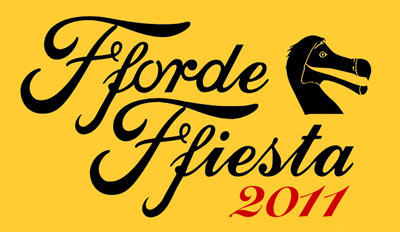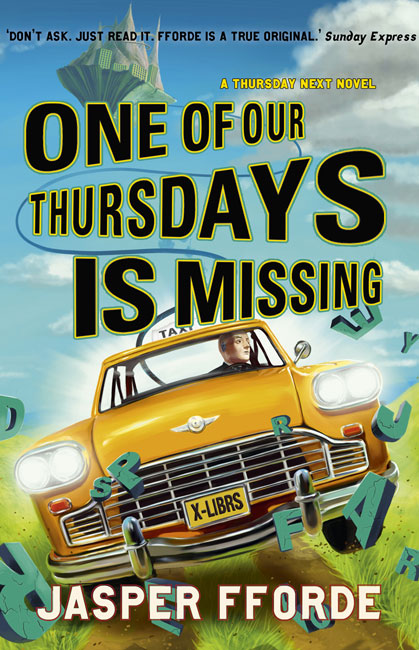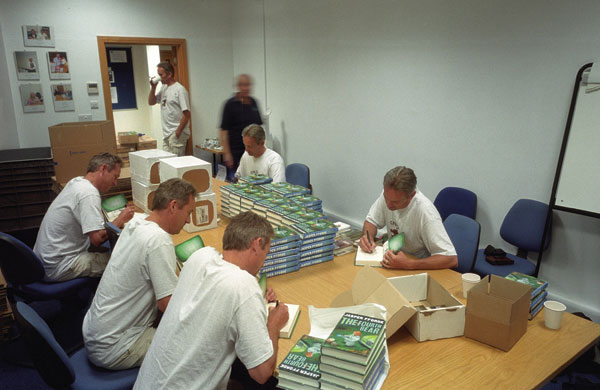Thursday, March 3, 2011
A conversation with Jasper Fforde (part 2)
My month-long Fforde Ffiesta celebrating the March 8th publication of One of Our Thursdays is Missing continues. As promised, here is the second half of the Viking publicity interview with Jasper Fforde. Part 1 of the interview may be read here, and my review of the novel may be read here. Readers who prefer to go into a novel completely blind may prefer to read this interview after reading One of Our Thursdays is Missing. Enjoy!
Q: The written Thursday has a very curious, perhaps disturbing interest in her mentor’s emotional life. What is it about Landon and their life in Swindon that so affects her? Does her meeting Landon change how she sees herself?
Being the written version of someone is a double-edged sword. You have many of the skills, but then you have a lot of the downsides, too. Written Thursday’s biggest problem is that she was written with the passion for the real Thursday’s husband, yet Landen refused to be featured in the Thursday Next books. (Perhaps it might be as well to explain at this juncture that the Thursday books in our world and the Thursday books in Thursday’s are quite different!) So, all the hots for Landen, but no Landen. It is a sense of loss that drives her, something which her ghostwriter intended. It allows me to look at the notion of someone who loves someone—but can’t have them. And how do they deal with that? More importantly, should a writer consider the emotional stress wrought upon their creations by clumsily written backstorys?
Q: Tell us about the killer mimes.
I’ve always found mimes a bit creepy and taking themselves a little bit too seriously, like all actors, really. Being a writer, I am in the top five of the professions who talk the most amount of bollocks about what it is they do for a living, but at least writers are behind actors and artists. And sometimes poets. Anyhow, the whole incident with the mimes simply popped into my head with a single line: “We had driven into a mimefield.” It was a gag I simply couldn’t not use, and I just like the whole silly notion. It’s very Bookworldish.
Q: What was the plot thread that you found most enjoyable to write?
Written Thursday being in the Realworld, I think. It might have been fun to have more of her coming to terms with the somewhat bizarre place we call home, but there wasn’t time. From what it feels like to breathe (gurgling and whiffling) to walking in a crowd (fraught with danger) or going to sleep (like dying, I should imagine), written Thursday finds the Realworld a bizarre place to be—and from the orderly Bookworld resident’s point of view, totally without any sort of understandable plot-line or resolution. “If the Realworld were a book,” she says, “it would never find a publisher.”
Q: Metaphors play a vital role in your world, and in the end, in the revelations behind the Peace Talks. Why are they important?
Metaphor is only of real importance on Fiction Island—in Non-Fiction, Metaphor is mercilessly hunted down and eradicated. Fiction is the world of ambiguity and inference, Non-Fiction the world of clean and clear facts. I like the idea of Metaphor being the magic dust that transforms shopping lists into revealing windows into shopper’s souls. Writing is a dark art, but it is by the very complex and often subtle use of metaphor and all the other mechanics of meaning and ambiguity can we hope to convey so much with so little. That being so, it follows that much of Fiction runs on Metaphor, and with a commodity so powerful, its production and supply becomes a matter of great concern. And drama is never far away.
Q: What’s next for you?
The next book will be a standalone. It’s time I did another. Then we’ll be either back with Thursday or with Jack Spratt—or maybe even Shades of Grey 2. Lots of options.
Subscribe to:
Post Comments (Atom)






No comments:
Post a Comment